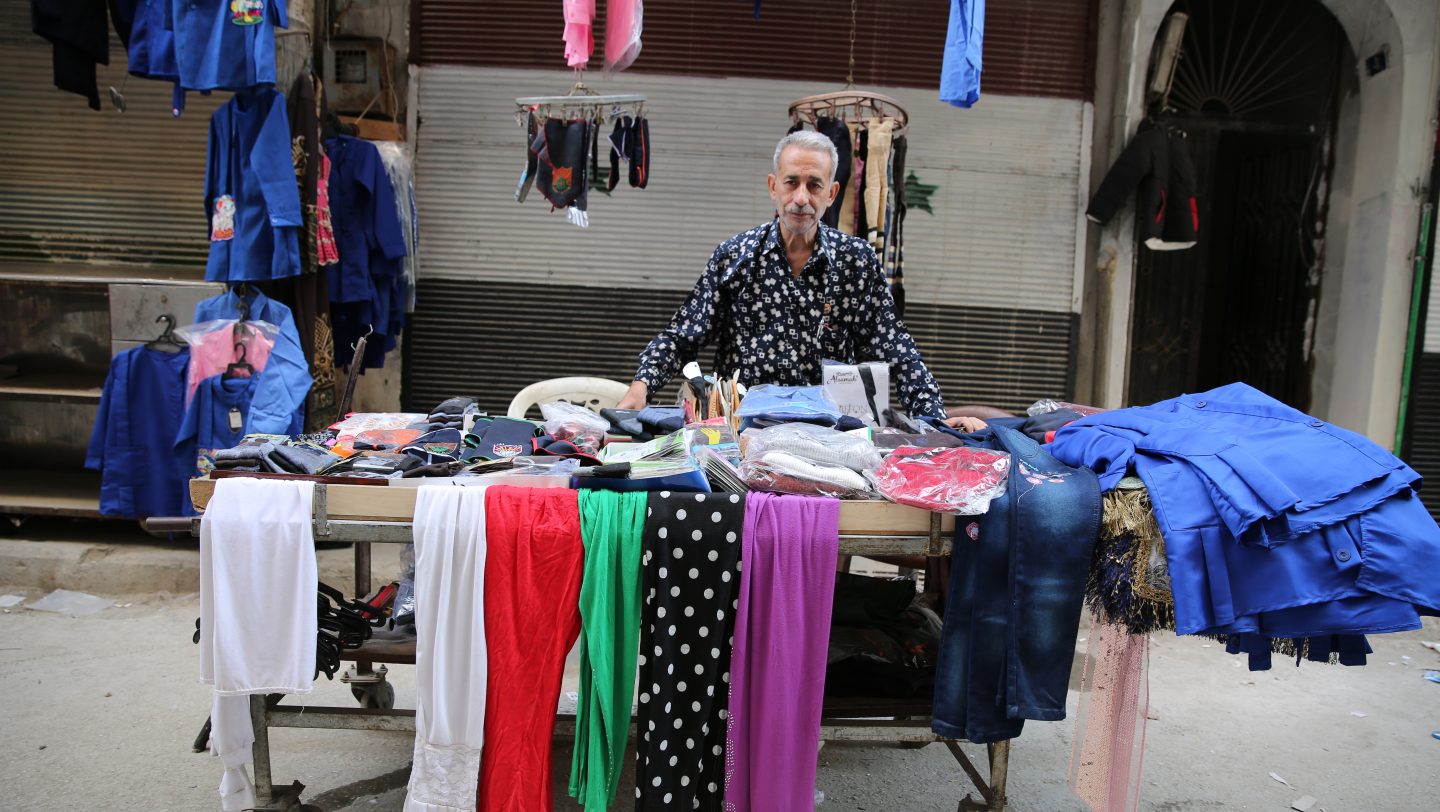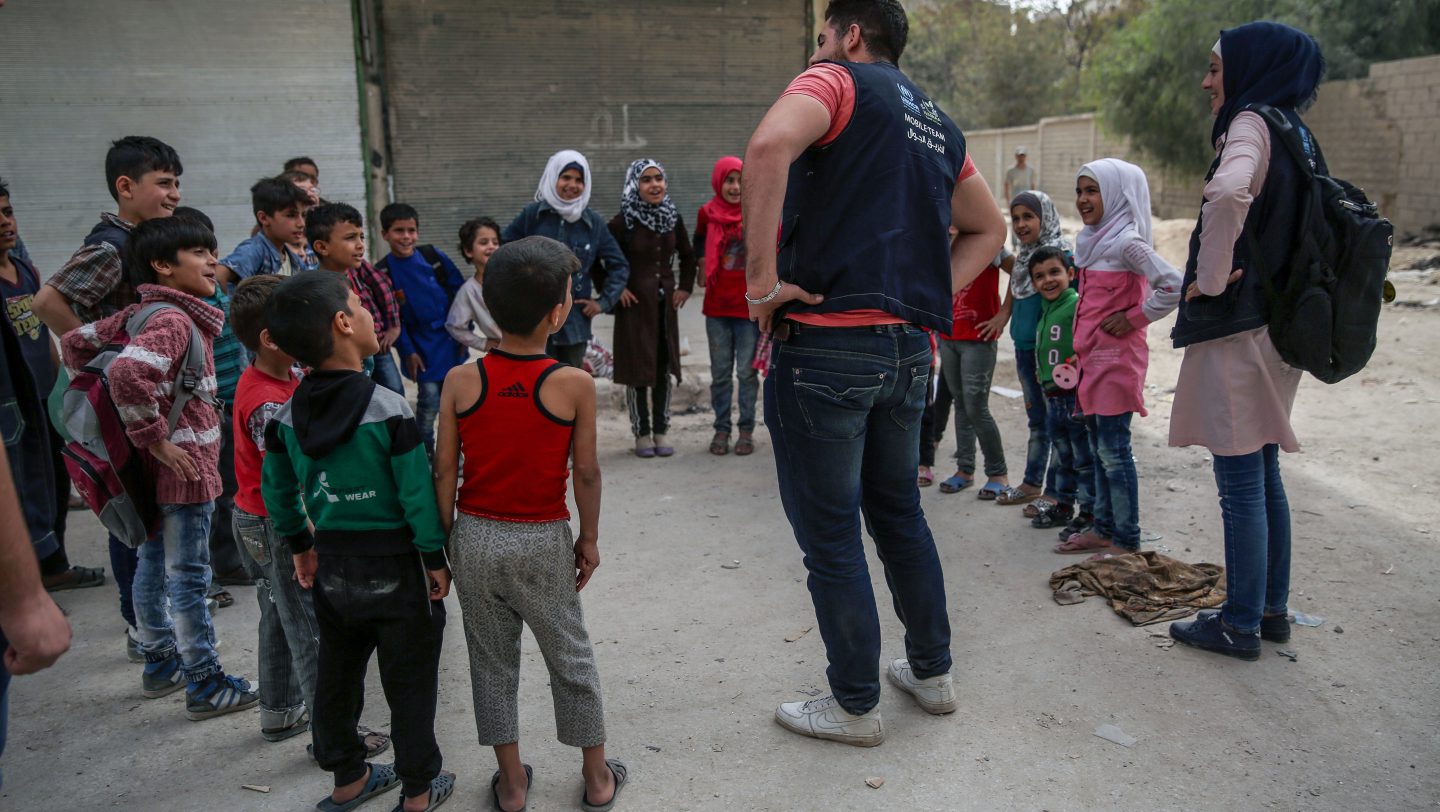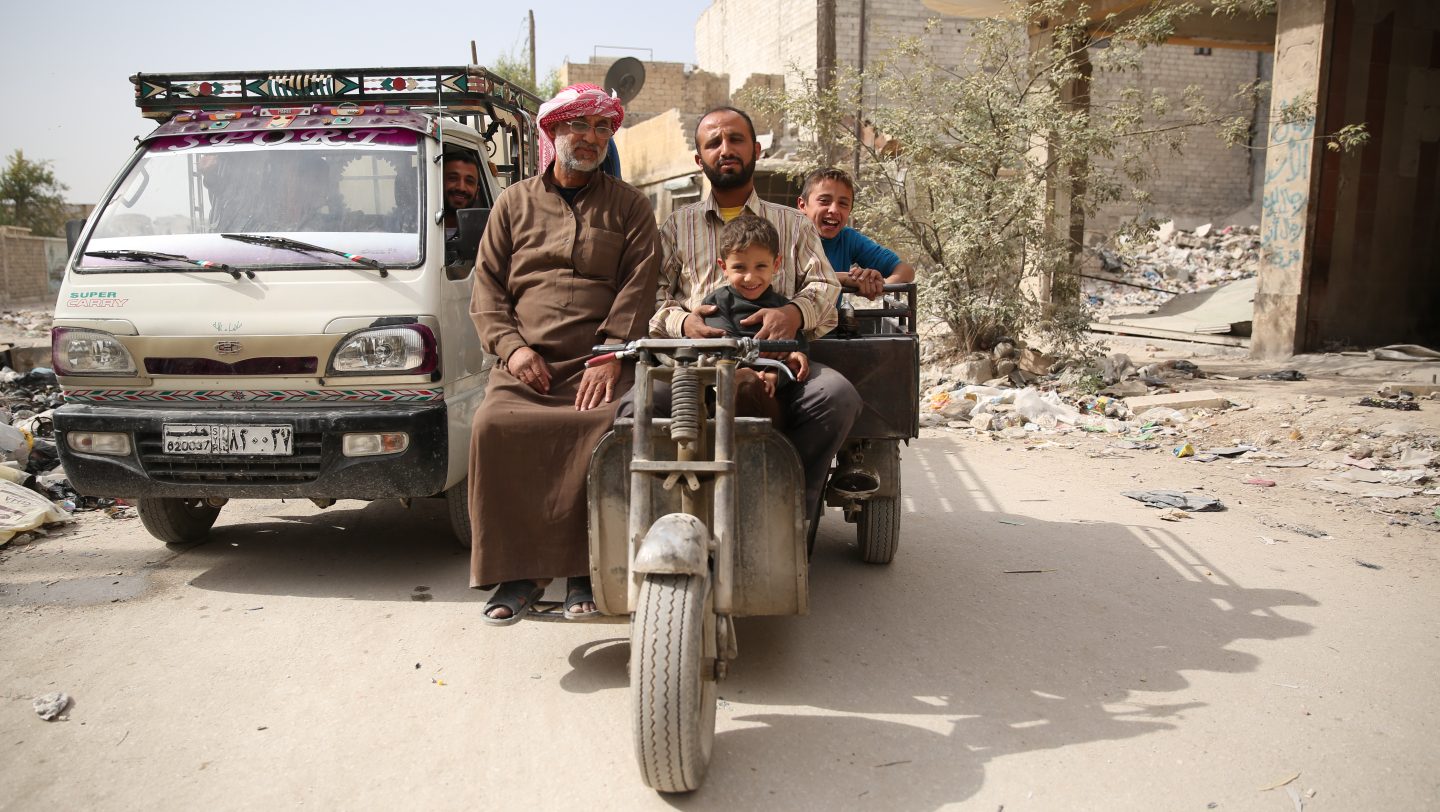Aleppo returnees make it home and UNHCR steps up response
In east Aleppo, we are seeing shops reopening, children going back to school, and aid workers rushing to provide help to returnees.
Fierce clashes and battles in Aleppo took a huge toll on the city. Once considered the country’s industrial and commercial capital, the crisis put great strain on its people. Trade, manufacturing and export opportunities have vanished. Almost all local production stopped and infrastructure was heavily damaged. Nevertheless, the people are exploring every possible way to start their lives again.
Mustafa-60 year-old and a father of four-had borrowed 150 thousand Syrian pounds (equivalent to $300) to buy clothes and school uniforms that he is selling now on a mobile cart in front of what used to be his shop. For many years he had this shop in Sad Allouz market in Al-Shaar neighborhood in east Aleppo.
“For now, my income is good as I am selling school uniforms, however, next month I have to find another way to improve my income”, said Mustafa.
In the past, Mustafa used to sell children’s and women’s clothes, where people used to come from rural Aleppo to buy goods from Sad Allouz market. According to Mustafa, he cannot open his shop now,
It’s not possible to fill the shop with goods like before
“I can’t afford to pay rent for a shop these days, it’s beyond my means. It’s not possible to fill the shop with goods like before”, he said.
Mustafa lived through the last years in this neighborhood and never left. He preferred to stay but he suffered a lot, “We lived the harsh realities, with no food nor bread, I decided to stay as I had no place to go.”
The level of violence in east Aleppo had exceeded people’s ability to cope and the destruction was beyond their imagination. Now, people need many things to start again, they need safe drinking water, electricity, job opportunities, healthy environment, schools for their children, health care, psycho-social support, legal aid and many other vital services.
“Electricity is hard to come by in the neighborhoods of east Aleppo, we are waiting for the power station to function again, so electricity reaches our areas.” said Mustafa.
Amid the ruins, stones and debris and dusty streets, many Syrians have found the courage to return, one can see shops reopened, children going to school, and aid workers rushing to provide a help to returnees.
Naser is a father of two boys, Muhammed 11, and Yousef 9. Naser and his family with his father Muhammed returned to their house in Karm Al-Sultan in east Aleppo to find doors and windows of their house crushed and broken. Naser told us about the level of prosperity they had in the past, “We used to be self-sufficient in the past”, he explained,
we came back we just found our house, while our factory was totally destroyed
“We had a shoe-making factory, when we came back we just found our house, while our factory was totally destroyed.”
From the beginning of the Syrian crisis, Naser’s family fled to Hama city, where they rented a small apartment. Now, Naser dispatches goods among surrounding neighborhoods on his motor bike to earn a living. As for his father, he works in a shoe-making workshop for small wages. Their major concern is to find a good job that can help make ends meet for their family.
What we need for now is to find a good job to feed our children
“What we need for now is to find a good job to feed our children”, Naser said.
As people of Aleppo work to build their lives with determination, UNHCR works with 15 partners around the governorate to reduce vulnerabilities and provide support. Since early 2017, UNHCR distributed core relief items to more than 800 thousand people. Distribution is ongoing for other items covering the needs of returnees, such as solar streets lights, foldable sofas, gas cookers and in house solar lighting systems. UNHCR also repaired and rehabilitated 500 homes, distributed 4000 Shelter kits, removed 50,000 cubic meters of rubble from eastern Aleppo. Moreover, UNHCR has reached over one million people this year through a network of 15 community centres in Aleppo with a variety of protection services. Still huge efforts are needed to help people start their lives again.



